
Your study is about ‘targeted dream incubation’. What exactly is that?
Adam Haar Horowitz (AH) In short, the idea is that you could target specific content to be incubated in dreams, which is a kind of cheap explanation, but there’s been a long history of trying to have subjects dream of something specific. Partially, the interest is clinical – we want to avoid nightmares, for example. Partially, it’s therapeutic – we want people to help work through the more emotional side of some content. And partially it’s memory-based – if you dream about something, you’re going to remember it better when you wake up. So, there are all kinds of reasons to have someone dream about something specific, but it’s failed consistently for the past hundred years. What people have tried to do, is show people some content while they’re awake, and then wake them up four hours later in a REM cycle and see if they’re dreaming about the thing they saw when they were awake.
The basic thing that our team did differently was to target this funny period, which is variably called ‘covert REM’ or ‘Stage 1 sleep’, that’s right at the onset of sleep. It’s a period that looks like REM sleep on EEG, and experientially it’s also like REM sleep – you have dreams – but you’re not fully unconscious; you don’t have a sensory cut off from the world and can still hear. Because we targeted that early period, it worked a hell of a lot better than past attempts at targeted incubation.
Tell us about the wearable device, Dormio, that you designed for use in your experiments.
この記事は Very Interesting の January /February 2021 版に掲載されています。
7 日間の Magzter GOLD 無料トライアルを開始して、何千もの厳選されたプレミアム ストーリー、9,000 以上の雑誌や新聞にアクセスしてください。
すでに購読者です ? サインイン
この記事は Very Interesting の January /February 2021 版に掲載されています。
7 日間の Magzter GOLD 無料トライアルを開始して、何千もの厳選されたプレミアム ストーリー、9,000 以上の雑誌や新聞にアクセスしてください。
すでに購読者です? サインイン

COVID inquiry: What did we learn and what can we do better in future pandemics?
Masks, social distancing, lockdowns... how effective was the UK's response to the COVID-19 pandemic?

One hormone could be the key that unlocks a cure for morning sickness
The nausea and vomiting that, in extreme cases, can endanger mothers and babies might soon be just a memory

THE WORLD'S WEIRDEST CREATURES
Under the sea and upon the land, some animals look - to us - pretty strange...

WHEN MIND AND MACHINE COLLIDE
First, Elon Musk wanted to make electric cars ubiquitous, then he wanted to make space exploration a private enterprise. Now, with Neuralink, his newest venture, Musk hopes to merge humans and artificial intelligence. Turns out, it might not be such a crazy idea...
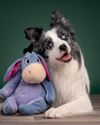
Genius dogs know tens of toys by name, but truly gifted canines know over 100
If your pooch can retrieve its toys by name rather than chewing them to pieces, you may have a genius on your hands
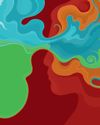
THE BROKEN MIRROR
Body dysmorphia - the all-consuming obsession with perceived flaws in our looks - is sweeping the globe. One in five young people is thought to be affected. What can be done and how is tech changing the way we see ourselves?
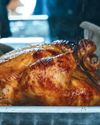
INDOOR AIR POLLUTION: HOW COOKING CAN DAMAGE YOUR DNA
From roast dinners to scented candles, there are potentially harmful pollutants lurking in every home
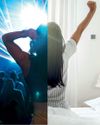
CAN SCIENCE TURN A NIGHT OWL INTO A MORNING LARK?
If you're a night owl, you probably have a hard time dealing with a world that starts at 8am. But can science help you tinker with your body clock to make it easier to rise with the larks?

THE MOST COLOURFUL SIGHTS ON EARTH
Long-distance travel is lovely, but it saves a bit of cash if we bring some of the planet's most spectacular natural places to you
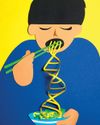
DO YOUR GENES INFLUENCE YOUR TASTE IN FOOD?
How DNA plays a role in shaping your menu choices